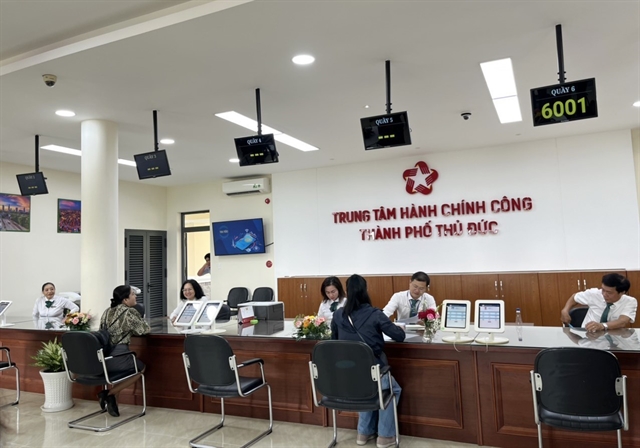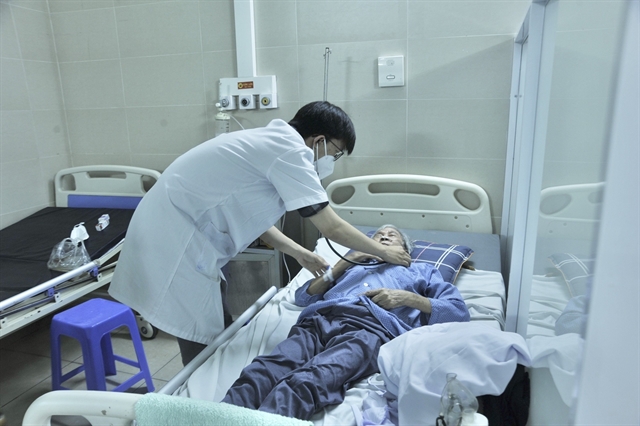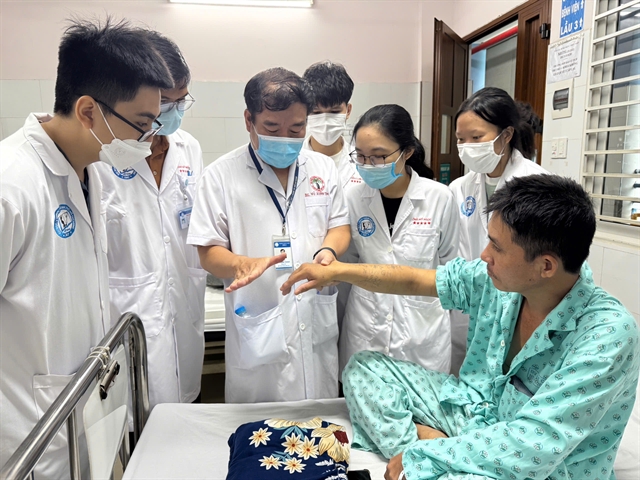 Society
Society


|
| A physician treats a COVID-19 patient at Hà Nội's Thanh Nhàn Hospital in April this year. VNA/VNS Photo |
HÀ NỘI — COVID-19 is officially a Class B disease per the 2007 Law on Prevention and Control of Infectious Diseases, according to an official document from the Ministry of Health (MoH) taking effect on Friday.
In Decision No 3896/QĐ-BYT signed by Deputy Health Minister Nguyễn Thị Liên Hương on Thursday, COVID-19 has been downgraded from a Class A to a Class B disease.
Class A infectious diseases are those with high infection and fatality rates, such as polio, influenza A-H5N1, plague, smallpox, Ebola, Lassa and Marburg hemorrhagic fever, West Nile fever, yellow fever and cholera.
Meanwhile, Class B consists of those that can spread fast and cause fatalities, including HIV/AIDS; influenza; rabies; pulmonary tuberculosis; dengue; hand-foot-mouth disease and measles.
Preventive and control measures for COVID-19 will be adjusted accordingly as per the law.
The Prime Minister has also issued a decision which states that from Friday, COVID-19 is a Class B disease with an average incubation period of four days.
In previous regulations, the period of disease incubation was set as 14 days.
If no new infection is detected for eight days, an announcement might be made to declare the end of the outbreak, according to Decision 02/2016/QĐ-TTg issued in January 2016.
When COVID-19 is recognised as a Class B disease, patients with health insurance will have their hospital fees covered according to regulations.
As of Thursday, Việt Nam has counted more than 11.6 million COVID-19 cases.
The country recorded 11 new coronavirus infections and 12 fully recovered patients from the disease on the same day.
According to the MoH, the current monthly average of new COVID-19 infections dropped by 68 times compared to 2022.
More than 266.5 million COVID-19 vaccine doses have been administered in Việt Nam.
Speaking to Sức khỏe & Đời sống (Health & Life) newspaper about the new classification, senior advisor at the Public Health Emergency Operations Centre Dr Trần Đắc Phu said that the MoH's statistics showed that there had been a sharp decrease in the number of new COVID-19 cases, with most having mild symptoms.
Việt Nam had also recorded no fatalities related to the coronavirus for many months.
However, Dr Phu said that unlike other Class B diseases, close monitoring and risk assessment would still be necessary for COVID-19.
While the World Health Organisation declared COVID-19 no longer a global health emergency, it is necessary to stay vigilant due to the new variants and instability of the virus, he added.
"These measures are to take immediate action and avoid being in a passive position in case there are new variants or unexpected developments."
"This is also the reason why the health ministry issued a plan to sustainably manage and prevent the disease," said Phu. — VNS




